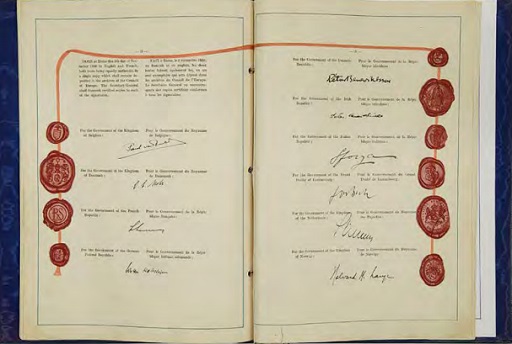1 Human rights and the ECHR
Human rights are regarded as a particular kind of right because of their universality.
They are rights that regard all human beings as being worthy of some basic respect. All are regarded as equal. To become a human right, the right must be fundamental to the basic entitlements of a human being.
Of course, rights are often limited; but any limitations are expected to be justifiable: balancing the rights of two or more individuals who come into conflict, for example.
Human rights also relate to human dignity and fundamental freedoms, which require legal protection from adverse interference by the State, where those rights derive from the fact of being human.
The Convention for the Protection of Human Rights and Fundamental Freedoms, more usually referred to as the European Convention on Human Rights (ECHR), is an international treaty. Its terms took 14 months to negotiate.
Each State signing the ECHR accepted that everyone within their legal jurisdiction should be afforded basic rights and freedoms, to be enshrined in the laws of each State signing the ECHR. The UK was the first State to ratify the ECHR and played a key role in drafting its terms.
The intention behind the ECHR was that for the first time, human beings in Europe should have human rights that were enforceable against public bodies under international law, before a court that was independent of individual States.
The ECHR represented the first steps for the collective enforcement of certain of the rights set out in the United Nations Universal Declaration of Human Rights. Subsequently, a list of civil and political rights and freedoms were defined.
Section I of the ECHR sets out 17 articles defining the fundamental rights and freedoms, which we have summarised [Tip: hold Ctrl and click a link to open it in a new tab. (Hide tip)] . Several of the articles are relevant to immigration law.
Obviously the summary of Articles 1–17 of the ECHR is light on detail: should you ever need to consider infringements of one of these rights, you would need to look to the full description as set out in the Convention to gain a clearer picture of what is encompassed within the particular right or freedom. Case law in the form of the decisions made by the European Court of Human Rights (ECtHR), which sits in Strasbourg, has further defined the application and scope of these articles.
As a result, it is not possible to simply think in terms of a breach of an article. It is also necessary to examine the substantial body of case law (frequently referred to as ‘the Strasbourg jurisprudence’ or ‘the ECHR jurisprudence’) that has built up over the years.
Activity 1: Immigration and the ECHR
Use the summary to list all of the ECHR articles that you think could be relevant to immigration law. Note down your answers in the space below.
Discussion
Articles which have been invoked in immigration cases include:
- Right to life
- Prohibition of torture
- Prohibition of slavery and forced labour
- Right to liberty and security
- Right to a fair trial
- Right not to be punished without law
- Right to respect for family and private life
- Right to an effective remedy
- Prohibition of discrimination in relation to other convention rights
- Derogations in times of emergency
- Restrictions on political activity of aliens
- Prohibition of abuse of rights
- A limitation on use of restrictions on rights
You will learn more about some of these rights as you progress through this session.


